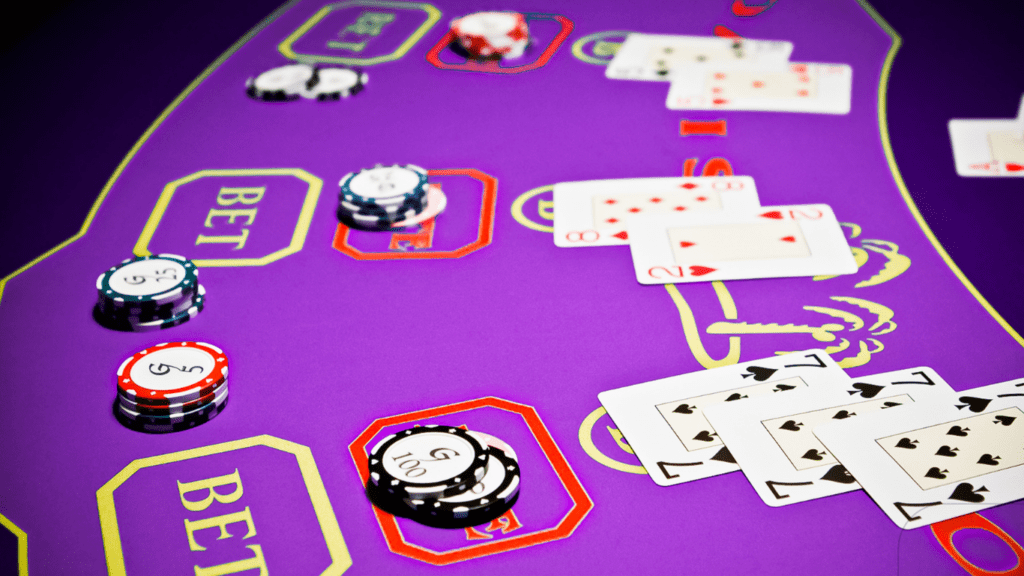Curious about the world of poker but not sure whether to dive into online games or head to a live table? As a seasoned player, I’ve explored the ins and outs of both online poker and live poker to help you navigate the pros and cons of each. Whether you’re a beginner looking to sharpen your skills or a seasoned player seeking new challenges, understanding the differences between these two formats is crucial.
In this article, I’ll delve into the exciting realm of online poker, where convenience and accessibility reign supreme. From the comfort of your home, you can test your strategies against players from around the globe. On the flip side, live poker offers a unique social experience, allowing you to read your opponents’ expressions and immerse yourself in the thrill of the game. Join me as we explore the advantages and drawbacks of online poker versus live poker to help you decide which suits your style best.
Exploring Online Poker
Online poker offers numerous advantages compared to live poker. Playing on digital platforms provides me with the flexibility to enjoy the game from the comfort of my own home. Additionally, online poker allows for playing multiple tables simultaneously, significantly increasing the number of hands I can play in a given time frame.
Advantages of Online Poker
- Convenience: Playing on online platforms means I can access games 24/7 without the need to travel to a casino or poker room. It fits perfectly into my schedule, allowing me to enjoy a quick game whenever I have some free time.
- Game Variety: Online poker sites offer a wide range of game variations and formats, from traditional Texas Hold’em to Omaha and Stud poker. This variety keeps the game exciting and allows me to explore different strategies.
- Lower Rake: Online poker rooms generally have lower overhead costs compared to live venues, resulting in lower rake fees. This means I get to keep more of my winnings when playing online.
- Lack of Physical Tells: One of the downsides of online poker is the absence of physical tells. In live poker, I can observe my opponents’ body language and facial expressions to gain insights into their hands. This element of reading opponents is lost in the online format.
- Potential for Distractions: Playing online exposes me to various distractions, such as social media, emails, or other websites. Staying focused on the game can be challenging, impacting my decision-making abilities.
- Technical Issues: Internet connectivity problems or server issues can disrupt online poker sessions, leading to frustration and potential loss of money. It’s crucial to have a reliable internet connection to ensure smooth gameplay.
Understanding Live Poker
Playing live poker offers a unique experience that differs from online poker. Here are the key aspects to consider:
Benefits of Playing Live Poker
- Physical Presence: In live poker, I can interact face-to-face with opponents, enabling me to observe their behavior and possibly pick up on tells that can give me an advantage in the game.
- Social Interaction: Being in a live setting allows me to engage with other players, creating a more dynamic and vibrant gaming environment that can enhance the overall experience.
- Atmosphere: The ambiance of a brick-and-mortar casino or a poker room adds to the excitement of the game, offering a thrilling and immersive atmosphere that online poker may not replicate.
- Slower Pace: Live poker games tend to progress at a slower pace compared to online games, requiring me to exercise patience and adjust my playing style accordingly.
- Travel and Expenses: Participating in live poker tournaments or cash games may involve travel costs and additional expenses, which can impact my overall budget for playing poker.
- Limited Game Options: In live poker, I may have access to a limited selection of games or variations, restricting my choices compared to the extensive options available in online poker platforms.
Comparing Online Poker to Live Poker

When considering the differences between online poker and live poker, several key aspects come into play.
Game Speed and Accessibility
In online poker, the game speed is notably faster compared to live poker. It’s common to see around 60-80 hands per hour in online play, whereas in live poker, the pace is much slower, usually averaging around 20-30 hands per hour. This increased speed in online poker offers more opportunities to play and practice, which can be beneficial for honing one’s skills. Additionally, online poker is accessible 24/7 from anywhere with an internet connection, allowing players to jump into a game whenever they want without the need to travel to a physical location.
Player Interaction and Tells
One significant difference between online poker and live poker is the level of player interaction and the ability to spot physical tells. In live poker games, players have the advantage of observing their opponents’ body language, facial expressions, and behavior at the table, which can provide valuable insights into the strength of their hand. On the other hand, online poker lacks this face-to-face interaction, making it more challenging to pick up on such cues. While online poker offers features like chat boxes for communication, it still doesn’t replicate the same level of personal interaction found in live games.
Strategies for Success
- Manage Your Bankroll: It’s crucial to set a budget for your online poker play and stick to it to avoid overspending.
- Use Poker Tracking Software: Utilize tools like tracking software to analyze your gameplay, identify patterns, and improve your decision-making.
- Multi-table Smartly: While it can be tempting to play multiple tables simultaneously for increased action, ensure you can make well-informed decisions across all tables.
- Understand Positional Play: Grasping the importance of position in poker is key to maximizing your winning potential and avoiding tricky spots.
- Take Advantage of Bonuses: Online poker platforms often offer bonuses and promotions; capitalize on these to boost your bankroll.
- Observe Your Opponents: Pay close attention to your opponents’ behavior, body language, and betting patterns to gain insights into their gameplay.
- Manage Your Tells: Be conscious of your own physical tells at the live poker table and work on maintaining a consistent demeanor to avoid giving away information.
- Control Your Emotions: In live poker, staying composed and managing emotions is crucial to making rational decisions and avoiding tilt.
- Adapt to Table Dynamics: Each live poker table has its unique dynamics; be adaptable in your playstyle to exploit weaknesses and capitalize on strengths.
- Practice Patience: Live poker games can be slower paced compared to online play; exercise patience and wait for the right opportunities to make profitable moves.

 Flossie is an avid gaming enthusiast and a seasoned writer at Jackpot Joyfully. With a deep understanding of the gambling world, Flossie brings insightful strategies, tips, and updates to help players elevate their gaming experience. Her passion for responsible play and her dedication to providing valuable content make her articles a must-read for both newcomers and seasoned bettors alike.
Flossie is an avid gaming enthusiast and a seasoned writer at Jackpot Joyfully. With a deep understanding of the gambling world, Flossie brings insightful strategies, tips, and updates to help players elevate their gaming experience. Her passion for responsible play and her dedication to providing valuable content make her articles a must-read for both newcomers and seasoned bettors alike.
